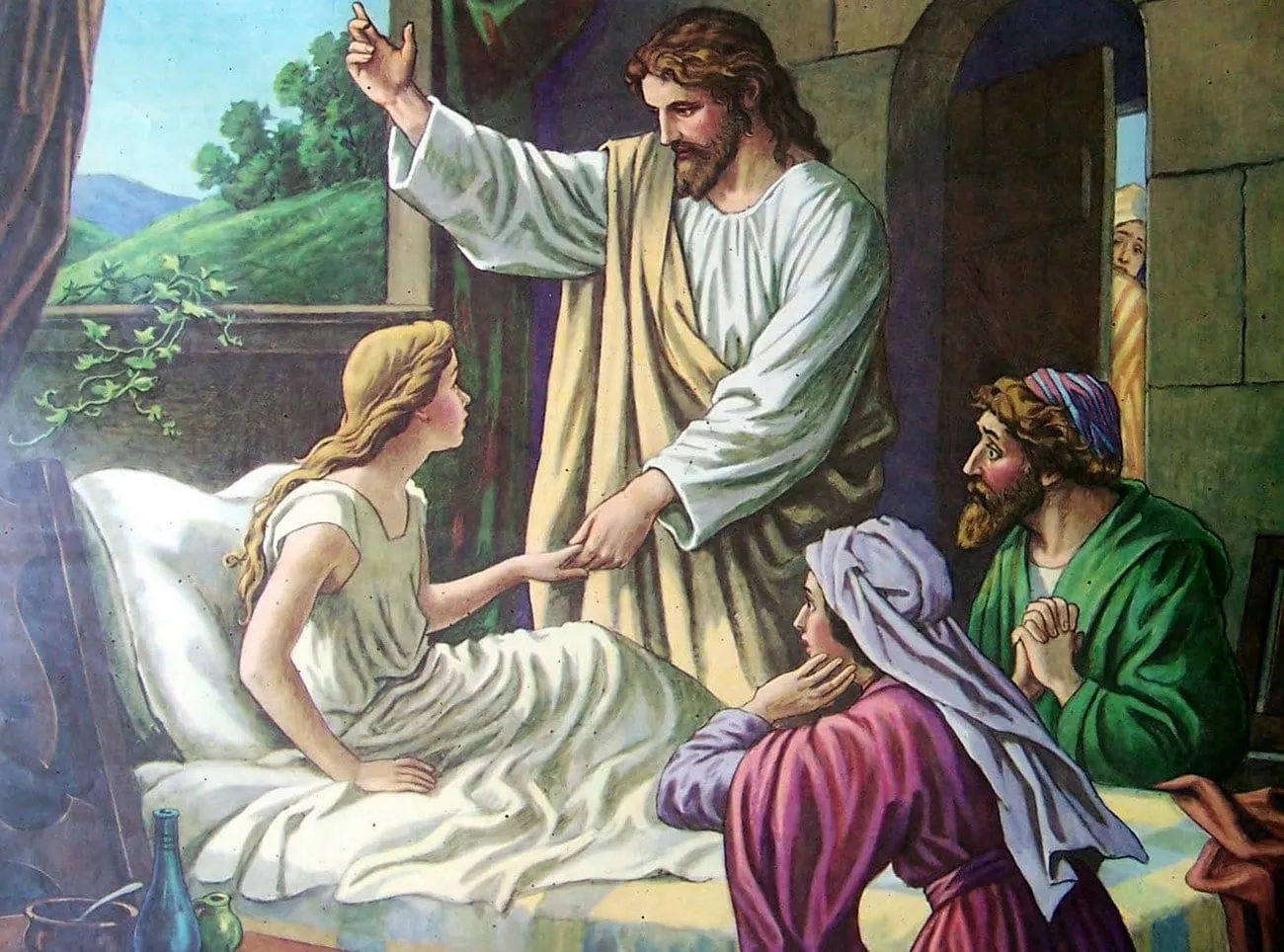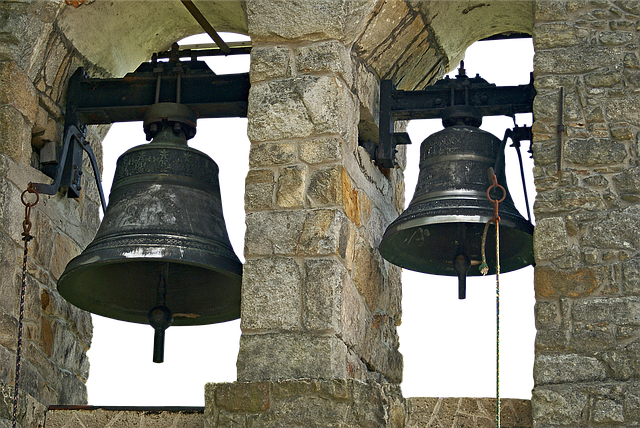Sacraments of Healing and Penance: Importance
With the reading of this article, you will be aware of what the Sacraments of Healing are , how to use them correctly and also, you will be able to clarify some myths regarding them.
The sacraments
The sacraments are something that is present in all families that are religious practitioners, for example, if we come from a Catholic family, it is likely that as children we received the sacrament of baptism, but this is not always the case, for example, there are families in which they leave this sacrament for later, therefore, it is normal that we see cases of children who are between 8 and 9 years old receiving their baptism.
Following baptism comes communion, a sacrament in which for the first time we try the wafer, it is normal that, in order to do this sacrament, we first take a course that lasts at least six months, as it can also last more than a year. After communion comes confirmation, it is with this sacrament that we reaffirm the vow of our godparents, thus affirming that we will remain within the Catholic faith.
Once these sacraments have been clarified, in the following article we are going to deal in depth with the sacraments of reconciliation and anointing the sick, these sacraments are taught in the catechism courses of the Holy Catholic Church, however, they are for some reason forgotten or not taken into account by the majority of practicing Catholics.
We must take into account that these sacraments are completely based on the teachings of our Lord Jesus Christ, he was the one who declared himself as a doctor for the health of our souls and our bodies, he was so great that he forgave the sins of those who repented, such as one of the criminals who was crucified with Him, therefore the Sacraments of Healing are based on His teachings.
The Sacraments of Healing are those sacraments that continue the actions of our Lord Jesus Christ, their purpose is to save and heal us, the means is the Holy Spirit. According to the Catholic Church, Jesus Christ, through the fulfillment of these sacraments, helps us obtain both healing and salvation.
The Sacraments of Healing
This sacrament is confession or better known as reconciliation, this sacrament can be done at any time, however, a crucial moment in which basically all Christians do it is before the first communion, this consists of confessing all the sins that we have done before a father.
This sacrament is accompanied by a penance, this will be according to the sins that we have committed, usually the father who is listening to us will be the one who determines it, for example, he could send us to pray four Our Fathers, ten Hail Marys and three Glories, that is just an example and it could be more or less, it could even be other prayers.
When we talk about penance, we have to understand that this, in a nutshell, is to demonstrate the repentance we have for some sin we have committed, although it applies to other areas of life. Its literal translation means having sorrow or repentance, however, in a theological context, it is used to talk about the virtues or the sacraments.
Penance as a virtue
When it is said that penance is a virtue, it refers to the fact that it serves so that the sinner feels repentance for the sinful acts committed, in addition, it is also a virtue because it creates in the sinner the will not to repeat the sin committed. Previously, finally, it is said that it is a virtue because it sows satisfaction in the hearts of sinners for having compensated for their sin through penance.
We must take penance carefully, that is, understand its true meaning, Christ asks us to become good Christians from the heart, when he calls us to penance he does not ask us for material works, on the contrary, he asks us for a conversion from the heart, to true repentance, otherwise, if everything is a superficial change, if we do not feel a real change, we will continue to be sinners.
According to theology, when we speak of penance as a virtue, we are not referring exclusively to external penance, but also to interior penance, that is, an act of contrition, when we sin we offend God the Father, therefore, penance has to be from the heart, in theology it is said that penance should not be done only out of fear, but also because by committing sins we offend God.
The virtue of penance must be cultivated by all of us, this virtue is what makes us good Christians, a good way to achieve it is through prayer, confessing for having committed some sin, attending the Eucharist and taking communion, putting into practice the voluntary sacrifice, thus achieving a stronger union with Jesus son and with the Virgin Mary.
Conversion as Sacrament
The virtue of penance leads us to conversion, that is, it makes us good Christians, in addition, it is one of the seven sacraments that Christ instituted, whoever does this sacrament is reconciled with the church, an institution that is also offended by our sins, reconciliation occurs by confessing sins before a priest, the Council of Trent gave the definition of “truth of faith.”
The reason why this sacrament is called the sacrament of conversion is because here the call of Christ is heeded to convert us, to return to the footsteps of Christ and to the arms of God the Father. The penance that accompanies this sacrament is called that for an important reason, it entails true repentance on the part of the Christian, it also carries the goodwill of the Christian on duty to repair the damage caused by his sins.
In addition to everything described above, confession is a vital part of this sacrament because the person is admitting the sins they committed before a representative of God, this is one of the most important requirements that is essential when obtaining absolution. and forgiveness of serious sins.
This sacrament is also given the name of reconciliation because the sinner is reconciled with God the father, this sacrament tells us about the need we have to reconcile not only with God the father, but also those affected by the sins we committed, in other words, “Go first and reconcile with your brother.”
The virtue obtained by penance is something that is closely related to the sacrament of reconciliation or penance, in other words, to be able to go to that sacrament correctly, the virtue that penance gives us is necessary, to have that heart repentant and sorrowful for the sins committed.
The sacrament of Reconciliation is considered a pure sacrament, or rather essential, this because all the necessary elements in a sacrament are imbued in it, these elements are: The sensitive sign, conferring the grace of God the father and having been instituted by God the father.
This is known as one of the two Sacraments of Healing , because it heals the spirit of people, specifically that of those people who are sick motivated by serious sins they have committed, this sacrament is needed to restore us to health , to heal us. A biblical fact that is used to compare this sacrament is; that Jesus forgave the sins of a paralytic thus restoring the health of his body.
Jesus created and instituted the sacraments, then left the church as the one in charge of preaching about them, being a responsibility acquired by Christ, the church is considered responsible for keeping all that power, this also means that no man can forgive his sins. sins for himself.
Returning to the same order of ideas, as in all the sacraments, the grace of God is received in reconciliation, the Father being a representative of God on earth, that is, he acts as an intermediary only, however, he is not the one who forgives sins, who has the power to forgive all sins, it is really the church as an institution thanks to the designs of Jesus.
The Council of Trent, in an attempt to put an end to heresies regarding the issue of forgiveness of sins, decided to remember that Jesus declared that only his apostles and their successors (the church) could truly forgive all sins, anyone who said to be able to do so would be regarded as heretical.
According to the above, this decision is due to the fact that, in the early years of Christianity, many events occurred that could be considered heresy or blasphemy, such as, for example, that another person could forgive sins if they were a good Christian, another fact that is also What happened regarding this issue was that the Protestant church attacked this sacrament from all sides.
Based on all the controversy that this sacrament has triggered, the church has been forced to reinforce this sacrament by talking about the miracles that Christ performed in life, remembering how he prepared his disciples and his apostles through his lessons, like this I forgive that poor paralyzed man in the city of Capernaum thus allowing him to walk again.
Christ granted his apostles the power to forgive sins, this simulates a judicial act, since the Father who hears the confession behaves in a similar way as a judge would, he imposes a sentence (forgiveness) and a punished ( penance), only here the sentence is granted only if the sinner complied with his punishment, the church defends this procedure on the basis that Jesus granted this power to his apostles and to the church.
The forgiveness of sins is something totally personal and depends on each person, in other words, if someone decides of his own free will to deny this and repent of his sins, then he will be rejecting the salvation offered by the holy spirit and will never be forgiven for no one, neither for God, nor for Jesus nor for the church.
One of the teachings that Jesus left was that: Anyone who dares to blaspheme against the Holy Spirit will never, ever, under any circumstances be forgiven, on the contrary, he will be a victim of eternal sin, this sin against the Holy Spirit despite being so innocent , is an attitude that can condemn people to eternal damnation.
The institution
When the resurrection of Christ occurred, all his apostles were gathered in his tomb, they were behind closed doors due to fear of the Jews, it is here when they receive a vision of Jesus and he tells them that peace be upon them, He was sent by the father, that is, God, just as He was sent, He would also send them, and it was just at that moment that He told them to receive the holy spirit.
When the apostles received the holy spirit, he gave them a message and it was that those who forgive their sins will be forgiven, but those who do not receive said forgiveness of their sins will keep them, therefore, it was at this moment that Christ He gave his apostles and the church the power to forgive sins.
Christ having pronounced those words, instituted this Sacrament, he feels a deep love for all human beings, that is why, through his infinite forgiveness, he left us his apostles as intermediaries to obtain the forgiveness of sins, in fact , so as not to leave us completely helpless, he allows the apostles to continue with their mission.
Perhaps one of the greatest signs of love that Christ could leave us was, leaving us a way to free ourselves from sin or, rather, to be forgiven for sin. This only shows one fact, God has for us imperfect and sinful beings, an unconditional love, he will always forgive us for our sins if we truly repent.
Through various passages in the Bible, you can see how God has mercy on sinners. Christ knew that we humans are weak, He knew that we would move away from Him and from the father because of sins, that is why, in order to save us, He granted us this sacrament, in order to be saved from sin, this only shows that love of God and the love of Jesus for us are infinite.
The reconciliation
Thanks to the sacraments, we can know that only by reconciling ourselves with God the father and with our brothers can we feel free to be loved by God. This sacrament of reconciliation teaches us this lesson, it also makes us see that sin harms us both physically and spiritually, also pride, lies and hatred in our hearts makes us feel frustrated, melancholic and even rebellious.
Reconciliation is usually accompanied by a prayer, or seen in another way also, a few words dedicated by the Father who is in charge of hearing our confession, they are nothing more than a small summary of everything that Jesus did to reconcile the world, they also serve to forgive us for the sins we have committed, these words are:
God, merciful Father, who reconciled the world to himself through the death and resurrection of his Son and poured out the Holy Spirit for the remission of sins, grant you, through the ministry of the Church, forgiveness and peace. And I absolve you from your sins in the name of the Father and of the Son and of the Holy Spirit.
These words are intended to forgive the sins we have committed, the means is confession, it is important to see how special mention is made of the Father, the Son and the Holy Spirit, or, in other words, the Holy Trinity, so Therefore, when the Father blesses us with this prayer after our confession, he is leaving us with a great blessing.
The Rite and Celebration of the Sacrament
This sacrament has had many changes in the way it is celebrated over the years, however, the way in which this sacrament continues to be celebrated like the others is considered a liturgical action, in addition, it is accompanied by two elements that could be considered fundamental for its correct celebration.
It is considered that the first fundamental element of the celebration of this sacrament are the acts of the one who wishes to reconcile with the Lord, these are very varied and range from the confession of sins, sincere and heartfelt repentance, thus finally reaching the fulfillment of the penance
The second element that is considered fundamental to celebrate this sacrament is the action of God, to be more specific, the forgiveness of sins, but this happens thanks to the parents and priests who act as intermediaries being representatives of Jesus here on earth, they are in charge of listening to the confession of the penitent and of placing a sentence according to it.
The way in which this sacrament is received is usually individually, only involving the Father who hears the confession and the one who is confessing, this occurs in a confessional inside a church, usually he receives his penance and absolution for his sins of individually or individually.
There are quite particular cases, it could be said that they are exceptional in which a Father or priest can choose to apply an absolution to a public or group of people, they are rare cases, but it happens on some Catholic holidays, they are situations in which, if not If this forgiveness were imparted, people would be left without receiving sacramental forgiveness for a long time, all through no fault of their own.
However, receiving this absolution does not exclude people from going to church and confessing, as soon as they have an opportunity they should go and admit the sins that have already been forgiven through general absolution, it is normal that at the time of To receive general absolution, the Father or priest makes this reminder to them, the reason is that sins are individual, therefore, the penalty is also individual.
The contexts where a general acquittal is allowed are in those countries where they are at war, it is quite possible that in one of these countries people receive an unforeseen death, it is also valid to carry it out if there is a natural catastrophe on the way, another case in what would be allowed is that there is a lack of Fathers in the city, otherwise, this absolution is totally prohibited.
There are cases where people decide to make a confession for all the sins they committed during their life, or also, for a very long period of it, they even confess sins that they had already confessed in the past, this with the intention of showing repentance. furthermore, this is known as a general confession and the Father or priest who hears the confession usually advises the person of this.
When a devout person falls before a disease that threatens his life with death, limiting the ways of expressing himself verbally, he usually receives a pardon for his sins, but in a conditional way, that is, a pardon that is given according to the conditions that exist. had the person to confess, this according to their state of consciousness at the time of confession.
parents and people
As stated previously, Jesus gave his apostles the ability to forgive sins, the bishops and priests are nothing more than his successors or, it is also valid to say, heirs of that ability, therefore, they fully possess the sacrament of orders, have the powers conferred by Christ on the apostles, they can forgive sins through confession.
The Council of Trent used this argument to go against Luther, saying that anyone who had been baptized had the power to forgive sins. The priest is a fundamental part of this, although it is Jesus who really forgives sins, priests have the power conferred by him to be able to forgive sins.
The Fathers must have the capacity to forgive sins, in other words, they must have the authorization from the church for this, not all the Fathers have it because, in order to exercise the forgiveness of sins, one must have the previous training to be able to give penance to the sinner, this should be done inside the church or, failing that, in a sacred place if the possibility exists.
Not all parents have the ability to forgive sins because they must first have the intention of being instruments of Christ, they have to prepare for this, because not all confessions are the same, in fact, some are very simple and others Rather, they require that the Father be well versed in knowledge of Christian behaviors.
When hearing confessions, the Fathers and priests must teach the penitent about what to do, they must teach him how to do his penance correctly and clarify any doubts that the penitent may have, in addition, he must do it without feeling like he is judging, this could make the person shy away from trusting him, on the contrary, he should motivate him to become a good Christian.
Returning to the previous idea, for an effective conversion there must be a change of life, a person will continue to commit the same sins constantly if he does not make a change of life, this is where the Father’s advice becomes vitally important, since these can be the difference between keep a person living in sin or, living a life with Christian values.
The Father has total freedom to deny absolution to someone who is confessing, obviously the reasons for this have to be serious, for example, that the person does not have sincere repentance, this could be considered by seeing their gestures or analyzing their words, so Therefore, it can be considered that this is one of the filters when confessing.
There are sins that are so serious that they simply cannot be forgiven, in fact, they are punished with “excommunication” from the church, clear examples of these sins can be performing an abortion or participating in one, This excommunication applies both to the person who receives it and to the one who executes it.
In cases where an excommunication has been suffered by the church, it can be considered as condemned because it is the strictest ecclesiastical penalty, this penalty prevents the person from receiving any of the sacraments, such as “absolution”, the sins that warrant this penalty are considered reserved sins.
Fathers and priests are subject to what is known as “confession secrecy”, anyone who decides to break this secret will be subjected to a very strong penalty, there are no exceptions in this regard, all priests and fathers must respect the secrets told in confession , that is a space between the sinner and the father.
Another condition apart from not being able to disclose the secrets told in confession is, not being able to use the information obtained through confessions, in other words, they cannot use said information to, for example, blackmail a person, nor can they reveal intimate details. .
It is considered “subject to reconciliation”, all those people who, despite having committed some serious sin, decide to go to confession with the correct attitude, in addition to that, should not have any serious impediment that somehow does not make it worthy to receive absolution. There are people who consider themselves to live in a state of permanent sin, for example, those who marry, divorce and remarry.
Returning to the same order of ideas, it is considered that those who live under this condition of life are not suitable for absolution, this is because they break the promise “until death do them part” or, in other words, the indissolubility of marriage. However, these people are not expelled from ecclesiastical life, they are allowed to participate in activities and attend masses, so that they do not feel marginalized.
There are cases in which people who incur in this practice feel bad for breaking the holy union of marriage, they also feel bad for having failed Christ because of their sin, therefore, these people who seek help from the church are it can grant absolution if they repent from the heart for the sin.
The conditions to be able to receive the Holy Eucharist for these people change according to the rest, they must go to another church where they are not known, this with the intention of not committing what is considered a “scandalous sin”, this because the the couple and the father are the only ones who know the situation.
The Sacraments of Healing
The Anointing of the Sick and Penance are known as the Sacraments of Healing. The anointing of the sick is granted to all those who suffer from a physical illness, through divine grace, God gives them strength during their suffering, they also comfort them so that this situation is more bearable.
The Anointing of the Sick
In ancient times this sacrament was known as extreme unction, it was applied only to people who were dying, currently it is known as the anointing of the sick because it is a sacrament of health willing to heal the soul, through the Healing of the soul will heal the body of the Christian who is suffering from the disease.
In the new testament it can be read that Jesus took our weaknesses and our illnesses, then commanded his disciples to do the same, that is, to heal the sick, to resurrect the dead and to purify people who suffered from leprosy. , Jesus asked these to expel demons (disease), this can be seen in the gospels MT 8, 17 and MT 10, 8.
The church, having inherited from Christ the power to forgive sins, also inherited the healing powers of Jesus, you can see that they apply this sacrament when they put their hands on a sick person, then they anoint him with oil just as they did in their moment the apostles of Christ.
Despite what many think, this sacrament is more than a formality, its purpose is to protect and strengthen the sick, in fact, in the old testament you can see how they use oil to fortify and heal wounds, apart from everything This, the anointing with oil causes the sick person to be united to Christ, this because of the suffering caused by the illness, just as Christ suffered during his passion.
This sacrament and that of reconciliation are connected for a reason, sins must be forgiven, they only harm the spirit, for this reason the wounds that are formed in the body cannot heal because the sin of the soul also damages the body, also the person who is afflicted needs peace.
As can be seen, the anointing of the sick is applied by a priest, although it can also be applied by a bishop, in addition, the sick person can receive it more than once, however, it is not recommended to leave the anointing for when illness is terminal and death inevitable.
Continuing with the previous idea, when it is considered that the illness merits the anointing, one should not think too much about it and call the priest immediately. sacrament, in many cases this helps the patient to improve.
The oils used to fulfill this sacrament are unique and difficult to replace, in other words, not just any oil is good, only the one that the father or the bishop previously blessed, to receive the Anointing it does not matter if the sick person is confessed or not, the duty being is that this sacrament is given to those who need it when they need it, it is also important to clarify that it is the grace of God that heals, the bishop or priest who apply it are nothing more than simple intermediaries.
We must not fall into the mistake of calling this sacrament a healing mass, this is only a mass to pray for the sick, the one who really heals is Christ, we can go to mass and pray with faith, but this will only serve so that God hears our prayers, depending on their sincerity, he will work in our favor. There is a prayer that accompanies this sacrament when it is applied, it goes like this:
By this Holy Anointing, and by his gracious mercy, may the Lord help you with the grace of the Holy Spirit, so that, free from your sins, he may grant you salvation and comfort you in your illness.
The materials required to carry out the anointing is olive oil, this had to have been blessed by a bishop, in cases of emergency it can be a priest, the oil should preferably be blessed on Holy Thursday, “never during the sacrament », in places where olive oil cannot be obtained specifically, it is valid to use another type of vegetable oil.
reason for the sacrament
The purpose of this sacrament is to help the sick Christian, through it divine grace is conferred on him who is experiencing adverse feelings such as: illness or old age. Diseases and suffering are the moments in which human beings feel more powerless, added to this, it is when they begin to think more about the shortness of life and, consequently, they become more vulnerable beings.
The diseases that overwhelm men in many cases can cause them to hallucinate, thus leading them to think that they could die, that is why it is important to carry out this sacrament, so that the person has divine help at that time. As strange as it might seem to some people, at a time when serious diseases afflict humans, they choose to rebel and turn away from God.
In the same order of ideas, it is thought that moving away from God is partly caused by the anguish of the disease, in addition, the emotions of fear, intense pain and fatigue can despair the most believing person, it can even make him challenge to God, this is because depending on the evil that afflicts the person, he may not be in a position to pray to God, by not praying enough he is not united with God.
Continuing with the previously described, this absence of prayer makes the person reveal himself to the Lord, that is why the anointing is important, when receiving the prayers it is very likely that the person will reconnect with God, in addition, with the appropriate orientation, the disease could lead us to get closer to God the father, as for example happened when Jesus healed Lazarus.
It is known that death is a process almost as natural as life, but according to the Catholic religion, through the eyes of faith, death is known to be caused by sin, so those who die with grace of God, it is as if they had a small participation in the passion of Christ, this brings as a prize the power to participate in his resurrection.
From a religious point of view, death is nothing more than the end of our time on earth, depending on our actions on earth it will be decided where we will go at the end of earthly life, so knowing that our time here is precious and finite, it is normal for us to think about how we are carrying out the mission for which we came to earth.
In the old testament a story is told of a man who lives a terrible disease, he claims to God why I condemn him to that pain, he asks him to heal him and open the paths for his salvation, his pleas were so well known that everyone in Israel talked about the relationship between his illness and his sins, so the prophet Isaiah came looking for him.
Another cake biblical story about Christ and his work, he felt compassion for people who were sick, that’s why he was an exceptional doctor, not only did he heal the diseases of the body, he also cured the diseases of the spirit by forgiving sins, his love and compassion for the sick was so great that He allowed himself to be touched by them, this because his body gave off such a strong force and light that it cured them all.
Jesus to heal the sick did more than just let himself be touched, he also touched them to heal them, both the body and the spirit, He was a quite complete doctor because he healed not only the soul but the body as well, He took with his hands the miseries of men, in life He carried on his shoulders all the ills that afflicted men until the moment he was nailed to the Cross.
When Christ died on the Cross for us, he assumed the sins of all of us, freed us from that and therefore from the disease that is a consequence of sin. From that moment that he made that noble act of sacrifice, the disease has a new meaning, it resembles us more to him and attracts us to his passion, now the disease is seen as redeeming.
The Institution of the Anointing
At the time that Christ invited his disciples and apostles to follow in his footsteps, he taught them that this also meant carrying his cross, this would make them part of his life, a humble and poor life, this made them change their point of view with Regarding the illness and the suffering that it possessed, this is how Christ makes them participate in his mission of healing.
It is known that the anointing of the sick was one of the holy sacraments that were instituted by Christ, he entrusted this task to his apostles and, therefore, to the church. As a result of this, the church preaches that, among the seven sacraments, this one especially served as a help for the sick, this sacrament helped them deal with the problems that illnesses bring.
Saint Paul went so far as to say that with his body he completed what was missing from the tribulations of Christ, all in favor of his body which was the church, with this he meant that not even the most faith-filled prayers would achieve total healing. of illnesses and sufferings, this is because they have a reason to be suffered, in this case to get closer to God.
The Holy Catholic Church heeded Christ’s call to “Heal the Sick”, it can be evidenced in how he cares for the sick and his intercessory prayers. The Catholic Church promulgates this sacrament through the biblical text of James 5, 14-15, in which it says that if a person is sick, call a priest, he will pray over him to heal him.
Rite and Celebration of the Anointing
The sacraments are celebrated in a communal and liturgical way, the anointing of the sick is no exception to the rule, this can be done in places such as at home, a hospital, it is even valid to do it in a church, for the correct realization of the same , it is requested that it be preceded by the sacrament of reconciliation and succeeded by the sacrament of the Eucharist.
The celebration of this sacrament consists of two parts, first, in the utmost silence, hands are placed on the sick people, then a prayer is made for their speedy recovery. Secondly, the anointing of the oil is applied, this is applied exclusively by a Bishop or a priest (certain conditions apply to the latter).
priests and people
When performing this sacrament, only Bishops can carry it out, priests also under specific conditions. The duty of those in charge of applying this sacrament is to inform correctly about the advantages of receiving this sacrament, as well as to advise adequately so that people receive it with the best possible disposition.
The subject to receive the sacrament of anointing is any faithful devotee who, in consideration of their state of health, either due to age or illness, requests that it be applied to them. To receive this sacrament there are some conditions, for example, having been baptized, being fully conscious and in use of your five senses, this because even before receiving the sacrament you are in a position to commit sins, which is why this sacrament It is not performed on children under the age of seven.
There are cases in which, in addition to having the intention of receiving the anointing, if the sick person is no longer in a position to ask for it, but before losing consciousness he asked for it, he can receive the Sacrament, because before losing his conscientiously he practiced Christianity and, therefore, it is assumed that he would desire it, the proof is that there is nothing that shows the contrary.
It is considered that this sacrament should not be applied if the person lives constantly in sin, that is, if when he is in full use of his faculties without suffering from any illness his life is oriented towards sinful acts, nor should it be applied if the person in full use of his faculties decides that he does not want to receive the anointing.
To receive the anointing it is not necessary that death be imminent, the only thing necessary is to suffer from some illness or to be of advanced age, some bishops recommend that the anointing be received before an operation which carries some risk, such as, for example, losing the person’s life.

Hello! Let me enthusiastically introduce myself as a dedicated blogger fueled by an intense passion for meticulously crafting insightful and well-researched blogs. My mission revolves around providing you, dear readers, with a veritable treasure trove of invaluable information.







